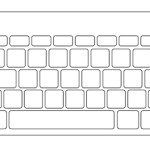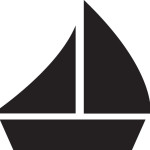
Making your Resume can be rewarding in more ways than one
It’s time to make an inventory of your experiences and accomplishments, time to make your resume. You will probably make a first draft, and later realize items you can add to your resume that you had forgotten about. Eventually you may decide you have so much in your resume, you may choose to eliminate lesser items.
The great thing about making your resume is that you will hopefully realize you have done a lot of great things, which is a gratifying experience.
WAYS YOU WILL USE YOUR RESUME
1. Identify Gaps
One advantage of starting early on your resume is discovering gaps in your experiences. Seeing those gaps means you can either try to fill those gaps, or at least create a narrative to explain those gaps. Those gaps might involve time frames without a lot of activities. If you have summers that you didn’t work, volunteer or become involved in interesting activities, you better be able to explain why. Did you babysit your siblings that summer? Put it in your resume! If the summer after your Sophomore year doesn’t have a lot to show for it, time to make plans for the summer after your Junior year. You may discover you have gaps in types of experiences. Never done a school sport? Been involved in extracurricular activities, including clubs and competitions? Try to step back and look at your resume the way someone who doesn’t know you will look at it, and consider your resume with a critical eye. Show it to your High School Counselor, your parents, any adult you respect, and ask for their feedback. If you don’t think you can explain time frame gaps in your resume, don’t format it chronologically. But be ready to discuss the gaps, if someone looks closely at your resume.

Is there a theme to your experiences? It may not be something tangible, like sailing. It may be an adjective, like perseverance
2. To Identify Themes & Passions and Create Your Narrative
You may not have realized a common thread in your activities. Maybe unconsciously you have done a variety of things that prepare you for something you hope to accomplish. That is a great story to share. Did you sail in a Junior Sailing Program for 3 years and volunteer to organize the equipment your 3rd year? Did you teach Juniors for 2 years after that, sailing competitively in your free time? Are you going on a 10-day solo sailing trip your Senior year of High School?
Demonstrate how your experiences fed your passion, culminating in your dream trip. Your resume can tell the story of your life in a much more interesting way than just listing dates and activities.
3. As a Resume During Interviews
You will hand your resume to Admissions Officers, Alumni, Professors, etc. who interview you. Make sure your resume reflects who you are and what you are passionate about. Your resume should identify you and supplement what the interviewer learned about you in person. Your resume will help them remember which one of many students they interviewed. ‘Mary Smith? Which student was Mary Smith? Oh, that’s right, she told me about her solo sailing trip (listed in Mary’s resume) and how she would like to sail in College.’ If Tom Jones’ resume says “I took 4 math classes and 5 science classes because I am interested in a STEM program.”, the interviewer may think, ‘Wait, I interviewed 4 kids interested in a STEM program, which one is this one?’. But if you resume indicates that you took those classes, volunteered at a Science summer camp for elementary students and tutor middle schoolers during the school year, the interviewer will identify you, because you were the one who said you are interested in becoming a Middle School Science teacher, which is why you have been not only taking STEM classes, but gaining experience teaching STEM.
4. To Help You Summarize Your Experiences and Accomplishments
You will use this resume to help you complete the Common Application and other college forms that ask you to talk about yourself.
If you want some specific advice on creating your academic resume, EHow has some tips.

